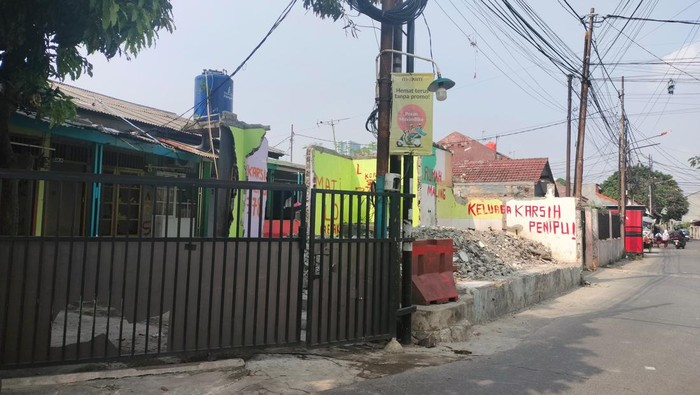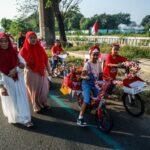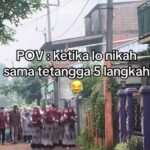Jakarta – A suspected fraudulent rental scheme in Bekasi has ensnared 62 victims, with total losses reaching Rp 7.2 billion. Here’s what the rental property looks like.
Jakarta
Jakarta, the capital city of Indonesia, is a bustling metropolis with a rich history dating back to the 4th century as a Hindu port city. It became a major trading hub under the Dutch colonial empire, known as Batavia, before gaining its current name after Indonesia’s independence in 1945. Today, Jakarta blends modern skyscrapers with historic landmarks like the Old Town (Kota Tua) and the National Monument (Monas), reflecting its diverse cultural heritage.
Bekasi
Bekasi is a city located in West Java, Indonesia, known for its rapid urbanization and industrial growth. Historically, it was part of the ancient Tarumanagara Kingdom (4th–7th century) and later became an important agricultural and trade area during the Dutch colonial era. Today, Bekasi is a bustling satellite city of Jakarta, blending modern development with cultural heritage.
Kampung Pulo Gede
Kampung Pulo Gede is a traditional village located in Garut, West Java, Indonesia, known for its well-preserved Sundanese culture and unique architectural style. The village is home to a small, tightly-knit Muslim community and features traditional wooden houses built on stilts, arranged in a circular formation around a central mosque. Historically, Kampung Pulo Gede is believed to have been established as a spiritual and cultural center, with local legends linking its origins to the spread of Islam in the region.
Jakasampurna
“Jakasampurna” is a historical site located in West Java, Indonesia, known for its cultural and archaeological significance. The area is believed to have been part of the ancient Sundanese Kingdom and contains remnants of old settlements and artifacts. Today, it serves as a reminder of the region’s rich heritage and attracts researchers and visitors interested in Java’s early history.
West Bekasi
West Bekasi is a district located in Bekasi City, West Java, Indonesia, known for its rapid urbanization and industrial growth. Historically part of the larger Bekasi region, which has agricultural roots, West Bekasi has transformed into a bustling area with residential complexes, factories, and commercial centers. While it lacks major historical landmarks, its development reflects the broader economic expansion of Greater Jakarta.
Bekasi City
Bekasi City, located in West Java, Indonesia, is a rapidly growing urban area known for its industrial and residential development. Historically part of the Sunda Kingdom and later the Dutch colonial empire, Bekasi has transformed from agricultural land into a key economic hub near Jakarta. The city blends modern infrastructure with cultural heritage, including traditional Betawi and Sundanese influences.
Nurul Iman Mosque
The **Nurul Iman Mosque** (Masjid Nurul Iman) is one of the largest and most prominent mosques in **Kedah, Malaysia**. Built in the early 21st century, it features modern Islamic architecture with a grand golden dome and minarets, serving as a key religious and community center. The mosque’s name, meaning “Light of Faith,” reflects its role in promoting Islamic teachings and unity among locals.






